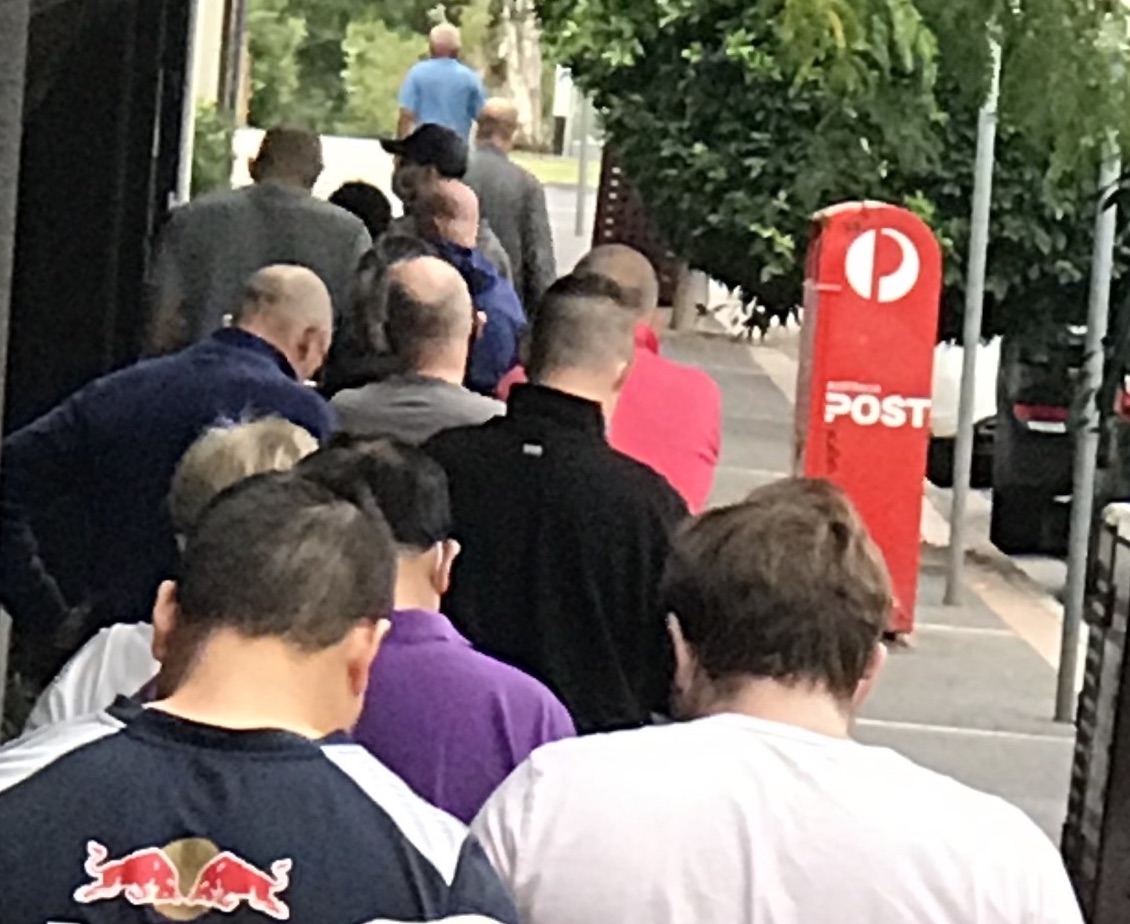This line leads to a lunchtime foodary in the suburbs of Melbourne.
Out of lockdown and restrictions (eg take-away only), the line can extend for 25 metres plus (with some social spacing) every day.
The service is speedy and so the wait time is not too bad considering all you need is a mobile device to keep your head down and your attention occupied.
There is also FOMO and the queue of social proof motivates even more people to line up.
Many of the same people are there on daily basis, even with other options available.
There is no loyalty program.
Loyalty is not a program. What is loyalty?
I have been researching the concept of loyalty to brands (beyond enrolling in a loyalty program) for the past 4 years and again in 2021 in the For Love or MoneyTM study.
While the results for the 2021 study are a few months away, from past studies, I have analysed the respective results and formed a definition of loyalty beyond enrolling in a loyalty program.
Loyalty is an outcome.
It is defined by
both behaviour and belief.
Behaviour is a transactional connection identified by spending more and purchasing more often from the brand.
Belief is an emotional connection where there is love for the brand, trust is inherent and recommendation results.
Both behaviour and belief are built over the longer term where competitive forces are in play.
Tailoring the generic to the specific
While the above definition is generic in that no specific brand is identified, we have been helping brands create their own unique definition of loyalty to their brand – from two points of view:
- The company (an internal view)
- The customers (an external view)
The two points of view are analysed for alignment (or not).
A unified definition is created.
The process is insightful.
The clarity and alignment (or not) of the outcome is powerful.
Why is it important to know what loyalty means to your brand?
When you have clarity on what loyalty means to your brand, you will then have the focus to explore the strategies to motivate that loyalty outcome.
One of the strategies to explore (and not the only one) is whether a loyalty program is the right strategy to leverage loyalty as defined.
If loyalty (by definition) is important to your business, then take the steps to understand what it is and work out whether a loyalty program is/isn’t the answer to your loyalty outcome.
It might just be the beginning of your line of loyalty…
Have a happy loyalty day!


